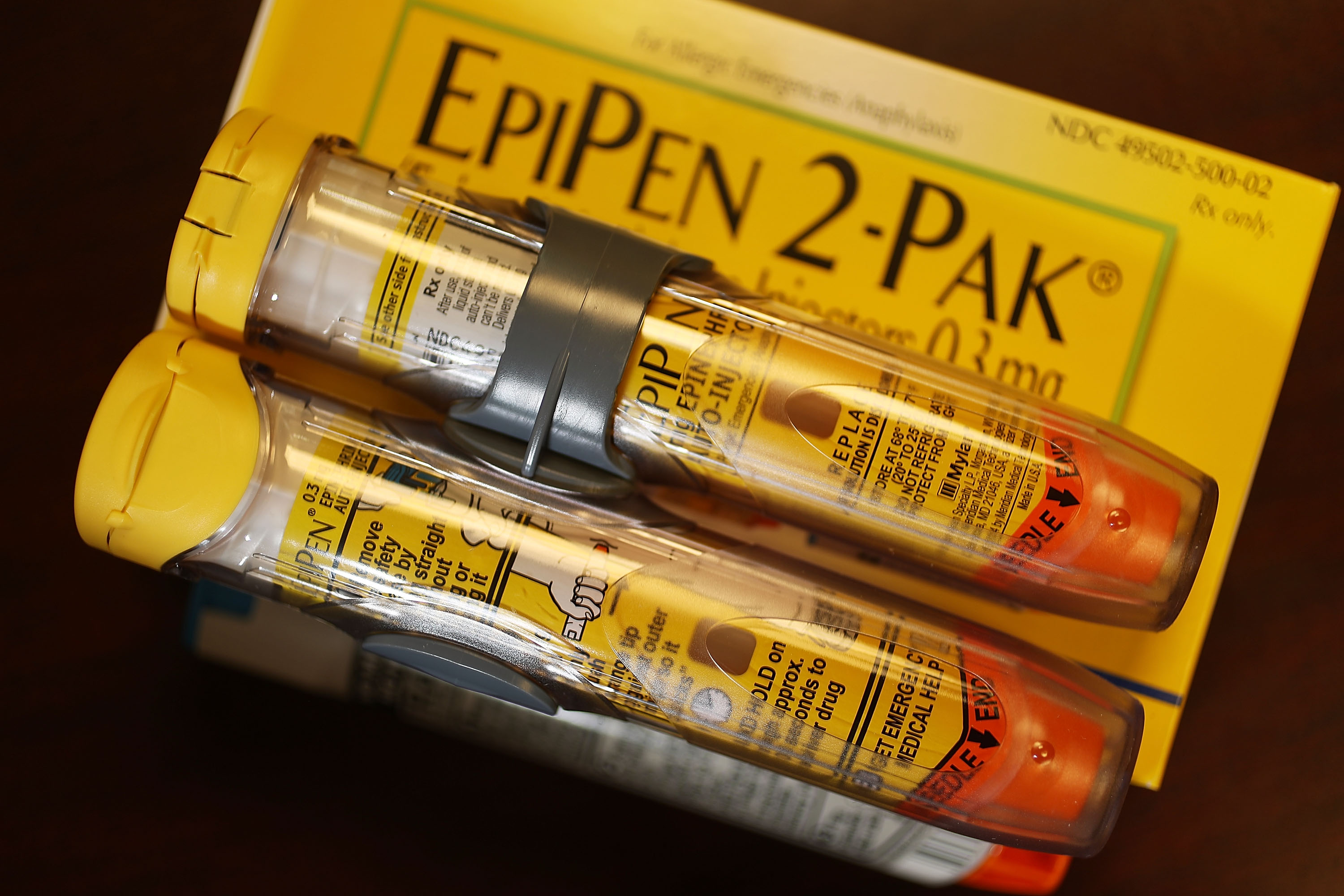The daily business briefing: August 29, 2016
Embattled Mylan will offer cheaper EpiPen alternative, stocks waver after Yellen boosts rate-hike expectations, and more


A free daily email with the biggest news stories of the day – and the best features from TheWeek.com
You are now subscribed
Your newsletter sign-up was successful
1. Mylan, responding to backlash, to offer cheaper, generic EpiPen
Embattled drug maker Mylan announced Monday that it would launch a cheaper, generic alternative to its EpiPen emergency auto-injectors to treat severe allergic reactions. The company has faced heated criticism over recent attention to sharp hikes in its EpiPen prices, which have soared from about $57 per pen in 2007 to about $600 for a two-pack of the potentially life-saving devices. Mylan said the generic version would be identical to the branded EpiPen, and cost $300 per two-pack.
2. Markets struggle for traction after Yellen remarks
Most global markets slipped on Monday while the U.S. dollar surged to a two-week high as investors digested Federal Reserve Chairwoman Janet Yellen's Friday speech, in which she noted signs of economic improvement and renewed expectations of an interest rate hike this year. U.S. stock futures struggled for footing. Dow Jones Industrial Average, S&P 500, and Nasdaq index futures edged lower by a fraction of a percent before the opening bell.
The Week
Escape your echo chamber. Get the facts behind the news, plus analysis from multiple perspectives.

Sign up for The Week's Free Newsletters
From our morning news briefing to a weekly Good News Newsletter, get the best of The Week delivered directly to your inbox.
From our morning news briefing to a weekly Good News Newsletter, get the best of The Week delivered directly to your inbox.
3. German minister says mishandling of Brexit could sink E.U.
German Economy Minister Sigmar Gabriel said Sunday that Europe could go "down the drain" if Britain's exit from the European Union is mishandled. Gabriel said in a news conference that "Brexit is bad but it won't hurt us as much economically as some fear." He said that it is important "to make sure that we don't allow Britain to keep the nice things, so to speak, related to Europe while taking no responsibility."
4. Oil prices fall on fresh oversupply fears
Oil prices fell early on Monday, facing pressure from several sources. Iraq's output rose, adding to oversupply concerns, and Iran repeated its vow to cooperate with any output freeze only if other producers recognized its right to regain the market share it lost under recently lifted sanctions. Some investors also were trying to lock in oil profits on increasing expectations of a looming interest-rate hike. International Brent crude oil futures were down 38 cents from their last close, trading at $49.54 per barrel, and the U.S. benchmark West Texas Intermediate crude futures were down 43 cents at $47.21 a barrel.
A free daily email with the biggest news stories of the day – and the best features from TheWeek.com
5. FDA gives Roche rush approval for Zika test
The Food and Drug Administration on Monday gave Swiss drug maker Roche emergency authorization for its Zika diagnostics test. The move lets Roche fast-forward past normal approval procedures, so its test can be used to screen patients with Zika symptoms who meet criteria set by the Centers for Disease Control and Prevention. The mosquito-borne virus, which can cause devastating birth defects, spread rapidly through Latin America and has now resulted in 2,517 cases in the U.S. Most were travelers infected elsewhere, but 29 of the patients were apparently infected locally in Florida.
Harold Maass is a contributing editor at The Week. He has been writing for The Week since the 2001 debut of the U.S. print edition and served as editor of TheWeek.com when it launched in 2008. Harold started his career as a newspaper reporter in South Florida and Haiti. He has previously worked for a variety of news outlets, including The Miami Herald, ABC News and Fox News, and for several years wrote a daily roundup of financial news for The Week and Yahoo Finance.
